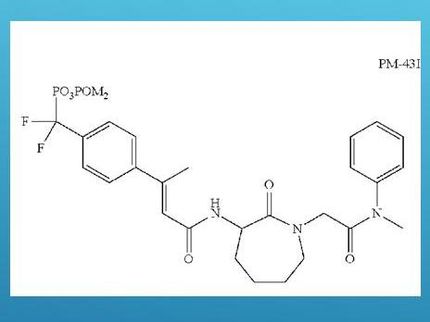Revotar presents positive results in Phase IIa Ozone Study with Bimosiamose for COPD
Advertisement
Revotar Biopharmaceuticals AG announced first positive results on a Phase IIa study conducted to evaluate the effect of Bimosiamose on ozone-induced airway inflammation in healthy subjects with a new controlled breathing nebulizer device.
Inhaled ozone in combination with physical exercise is an established standardized method to induce in healthy volunteers a reversible airway inflammation characterized by a cellular infiltrate and cytokines quantifiable in induced sputum. This is an accepted clinical model for the investigation of new anti-inflammatory therapies in chronic obstructive pulmonary disease (COPD).
The trial conducted at two centers in Germany was designed as a double-blind, placebo controlled, randomized cross-over study comprising 18 non-smoking healthy ozone-responsive volunteers. Each subject received nebulized Bimosiamose solution or vehicle for four consecutive days twice daily in two subsequent periods separated by a wash-out phase (cross-over). Treatment was followed by ozone challenge and subsequent collection of induced sputum that was analyzed for cellular composition and non-cellular mediators.
Inhalation of Bimosiamose with a new controlled breathing nebulizer device was safe and well tolerated. Compared to placebo, the compound demonstrated a broad and significant anti-inflammatory effect on cellular and non-cellular sputum parameters. Detailed study results will be submitted for publication.
"This trial confirms the anti-inflammatory potential of the inhaled pan-selectin antagonist Bimosiamose in a respiratory setting", said Prof. Wolfgang Meyer-Sabellek, Chief Medical Officer of Revotar. "It is in line with previous exploratory data and clearly supports the planned clinical development of Bimosiamose in COPD and other respiratory indications such as acute lung injury and asthma."
Most read news
Organizations
Other news from the department research and development

Get the life science industry in your inbox
By submitting this form you agree that LUMITOS AG will send you the newsletter(s) selected above by email. Your data will not be passed on to third parties. Your data will be stored and processed in accordance with our data protection regulations. LUMITOS may contact you by email for the purpose of advertising or market and opinion surveys. You can revoke your consent at any time without giving reasons to LUMITOS AG, Ernst-Augustin-Str. 2, 12489 Berlin, Germany or by e-mail at revoke@lumitos.com with effect for the future. In addition, each email contains a link to unsubscribe from the corresponding newsletter.


























































